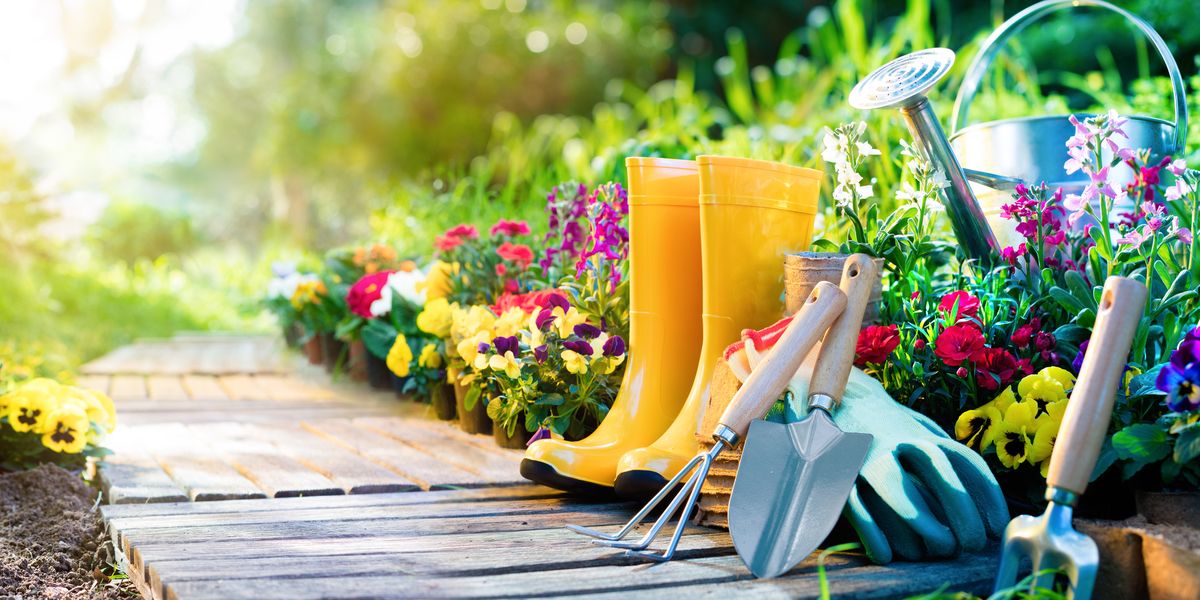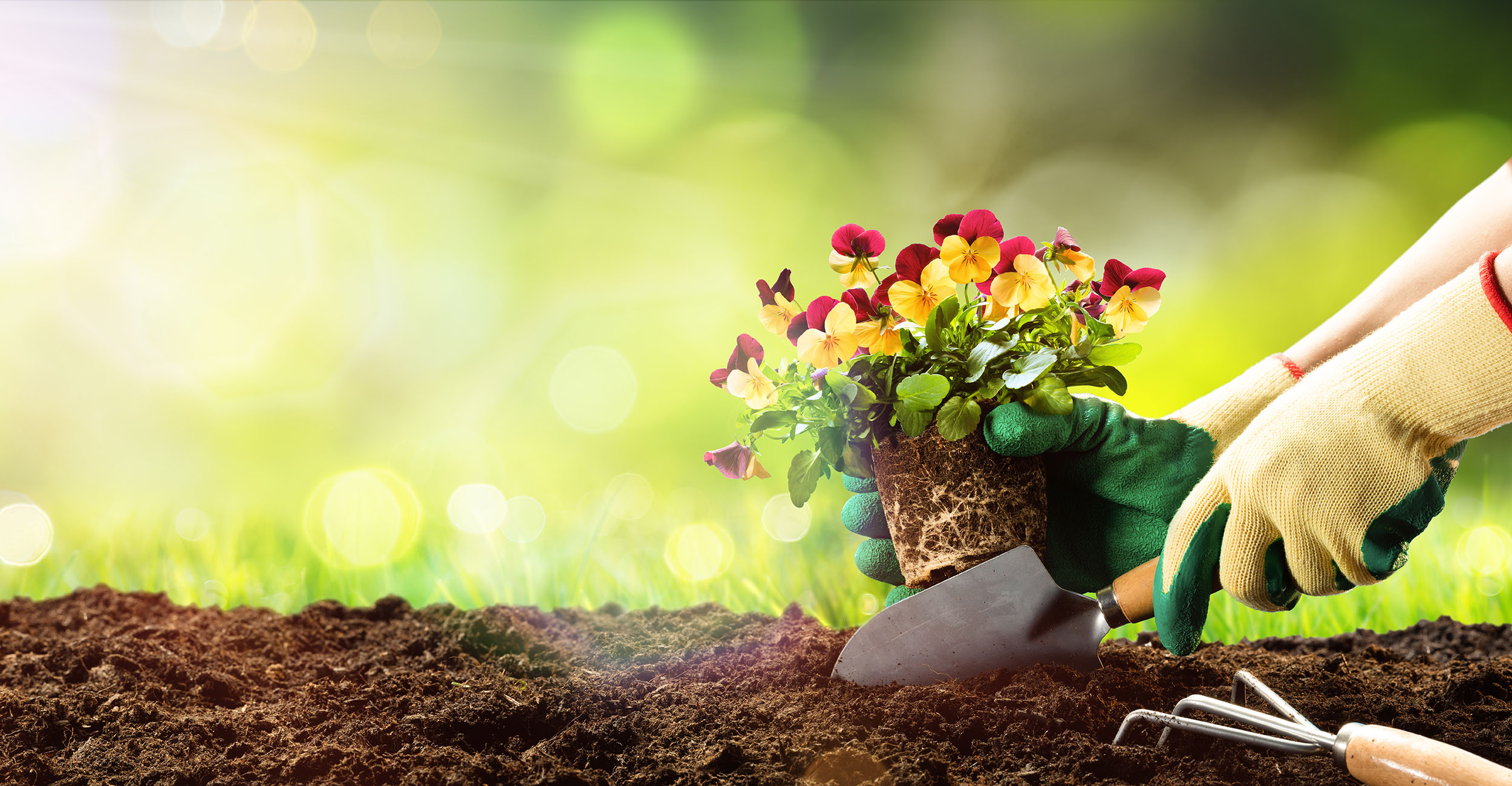Blossom right into a Pro: Home Gardening Tips for Beginners
Wiki Article
Expanding Eco-friendly Thumbs: a Beginner's Journey Into the World of Horticulture
Are you eager to obtain your hands unclean and begin expanding your very own yard? Look no more! In this write-up, we'll take you on a beginner's trip right into the globe of horticulture. You'll learn more about picking the right plants, recognizing dirt and garden compost, and necessary horticulture tools. We'll likewise instruct you watering and fertilizing techniques and exactly how to take care of typical garden insects. Get ready to cultivate your green thumb and see your yard grow!Picking the Right Plants
You require to assess your gardening room and determine the number of plants that will certainly fit pleasantly. Step the measurements of your yard beds or pots and calculate the offered room. Consider the fully grown dimension of the plants you intend to grow.When you have a clear concept of your horticulture area, it's time to select the appropriate plants. Particular plants grow in complete sunlight, while others favor partial color. This will certainly aid you pick plants that are matched to your details conditions.
If you're new to gardening, decide for plants that are simple to grow and call for marginal maintenance. Choose plants that have a much shorter maturity duration if you live in an area with a shorter expanding season.
Understanding Dirt and Compost
To guarantee the success of your garden, it is crucial that you comprehend the value of soil and garden compost. Soil is the structure of your garden, giving nutrients, water retention, and assistance for your plants. It is essential to have an excellent understanding of your soil kind, whether it is sandy, clayey, or loamy, as this will certainly figure out the sorts of plants that will certainly thrive in your yard. Compost, on the various other hand, is a terrific way to enhance the quality of your soil. It is composed of raw material, such as kitchen scraps, backyard waste, and leaves, that decompose gradually. Adding garden compost to your dirt will enhance it with important nutrients and enhance its framework, enabling for far better water drainage and aeration. You can either make your very own compost utilizing a garden compost bin or acquisition it from a yard center. Keep in mind, a healthy and balanced and fertile dirt is the essential to an effective yard, so take the time to comprehend your dirt and include garden compost to ensure your plants prosper.
Vital Gardening Devices
Currently that you comprehend the value of dirt and garden compost, let's discover the vital gardening tools you'll require to cultivate your environment-friendly oasis. Among the most standard tools you'll require is a yard trowel. This little portable tool is best for digging little openings, transplanting plants, and scooping dirt. Another crucial tool is a yard fork. home gardening for beginners This tough tool is utilized for loosening up soil, separating globs, and turning compost. An excellent set of gardening gloves is an essential to protect your hands from thorns, prickly plants, and dust. Search for handwear covers that are sturdy, breathable, and offer a great grasp. A garden hose pipe or watering can is necessary for keeping your plants hydrated. Select a pipe with a spray nozzle that permits you to adjust the water flow and pressure. A strong set of trimming shears or secateurs is important for trimming and shaping your plants. Try to find shears with a sharp blade and comfy handles. Lastly, a garden rake works for leveling dirt, getting rid of particles, and spreading out compost. With these vital tools in your gardening toolbox, you'll be well-appointed to develop and keep your environment-friendly sanctuary.Watering and Fertilizing Techniques

Dealing With Common Garden Vermin
As a newbie gardener, you might run into usual garden pests that can ruin your plants. These pests can vary from pests like beetles, aphids, and caterpillars, to small animals like bunnies and squirrels. It is very important to be able to deal and identify with these parasites efficiently in order to protect your plants and make sure an effective garden.One of the initial steps in managing garden bugs is to routinely evaluate your plants for any type of indicators of infestation. Try to find chewed leaves, openings in the foliage, or the existence of tiny insects. It's important to take action promptly to prevent them from spreading and triggering more damage. if you find any type of parasites.
There are several approaches you can utilize to regulate yard insects. Furthermore, there are natural insect control sprays offered that can aid deter and get rid of typical garden insects.
Keep in mind, avoidance is crucial when it comes to taking care of garden insects. Keeping your yard complimentary and clean of particles can help in reducing the likelihood of an invasion. Regularly getting rid of weeds and dead plants can additionally aid get rid of hiding areas for bugs.

Conclusion
By picking the right plants, recognizing soil and compost, utilizing necessary horticulture devices, and mastering watering and fertilizing techniques, you have set yourself up for success. Don't fail to remember to remain cautious in dealing with usual garden pests to ensure your plants flourish.Soil is the foundation of your garden, offering nutrients, water retention, and support for your plants. It is essential to have a great understanding of your soil type, whether it is sandy, clayey, or loamy, as this will identify the types of plants that will thrive in your garden. Remember, a healthy and fertile dirt is the vital to an effective yard, so take the time to recognize your dirt and integrate compost to ensure your plants thrive.
As a beginner garden enthusiast, you might run into typical garden insects that can inflict havoc on your plants. It's important to be able to identify and deal with these parasites properly in order to shield your plants and make sure an effective garden.
Report this wiki page